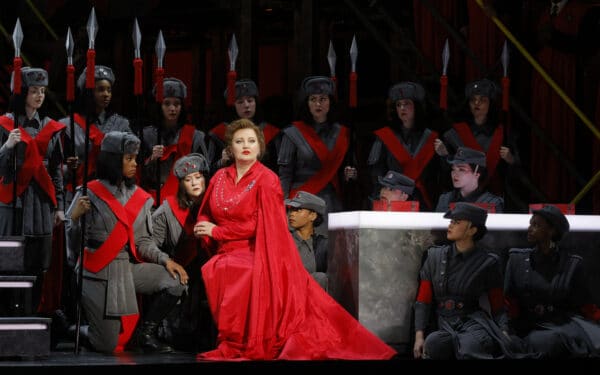There is something rather beautiful about Mortimer & Whitehouse: Gone Fishing, the second series of which is currently being shown on BBC Two. It isn’t obviously beautiful like those great works of art or music that one feels are unquestionably permanent. No, Mortimer & Whitehouse – a programme that essentially comprises two upper-middle-aged blokes chatting – certainly isn’t like that. It probably won’t win any awards and I can’t even be sure that people will remember it existed five years from now. But it is still beautiful, in its own subtle and impermanent way.
Two friends, Bob Mortimer and Paul Whitehouse, comedians both now in their sixties, go fishing together at various picturesque UK spots. And while they fish, they talk to each other, swapping stories, telling jokes. That’s all there is to it. Not a Bush Tucker Trial in site.
There’s no script, this isn’t a drama or a comedy show with a plot and rehearsed gags. Some have likened it to the The Trip with Steve Coogan and Rob Brydon, but I’m not convinced. That is a show that feels rehearsed, one in which Coogan and Brydon are evidently playing somewhat caricatured – and very amusing – versions of themselves. There is always a certain distance, somewhat ill-defined in places but a distance nonetheless, between the comedians’ real lives and what we the viewers experience of them. Not so in Mortimer & Whitehouse.
Here the conversation is quite real and authentic, and yes, you might point out that Big Brother and Love Island are unscripted too, but unlike most of the contestants on those reality shows Mortimer and Whitehouse are not fame-hungry twits, and so one never gets a sense that either of them are “playing up” for the cameras. Perhaps I have this wrong and they are both brilliant actors who in their brilliance have fooled me into believing that their apparent spontaneity is just that. Perhaps, but I doubt it.
As you might expect they are both naturally very funny men and their dialogue is mischievous and droll. While I have loved the outrageous surrealism of Mortimer’s work (Vic Reeves’ Big Night Out, Shooting Stars, Athletico Mince) since I was a boy, I also appreciate that his is a fairly divisive form of comedy which has aptly been classed in the “alternative” genre. But those who don’t like their comedy zany should not be put off here. There is nothing of the avant-garde or absurd in Mortimer & Whitehouse. The jokes are as gentle as they should be when the excursion of choice is catching trout in the River Usk.
But although these men are comedians who will make you laugh, that isn’t really the point of Mortimer & Whitehouse. No, it’s when the conversation turns to more serious matters, as it often seems to, that one feels the value of this programme and sees something that is a little profound in it. Both men’s fathers have died – Bob was just seven when his was killed in a car crash while Paul lived to be eighty-six – and they discuss the different effects this has had on them. Bob’s mother has recently passed away too, and he says how much he misses telling her about his children’s little achievements, because she genuinely was interested in them, unlike polite neighbours and other friendly parents who pretend to be.
There is something recognisably British about the pattern of their conversations, which never descend into the melodramatic and although these men aren’t from a “stiff upper lip” generation neither are they “millennials”. Talking about really painful experiences doesn’t come easily to them but the witty, charming and self-deprecating manner in which they both speak reveals more of their true emotions than perhaps they realise.
At one point each man recalls his first kiss, and they laugh together at how they can both remember the names of the girls in question, and at how something so apparently meaningless could ever have seemed as important as it no doubt once did.
Bob then recalls his mother-in-law towards the end of her life, looking at butterflies and flowers with a smile on her face. He tells Paul that he’s beginning to realise why she was smiling, and then the next moment, they’re waist-deep in a river again, slipping on rocks, fiddling with bait, poking fun at each other.
Its reflective and sad though never mawkish. The scenery is always delightful, fields and forests defiant in slow, fading sunsets and the day winding down again, which seems appropriate. We all start to wind down in the end I suppose, though it’s not something we like to think about too much. Perhaps we should. After all, Bob and Paul are thinking about it and they appear to be having more fun than most…



